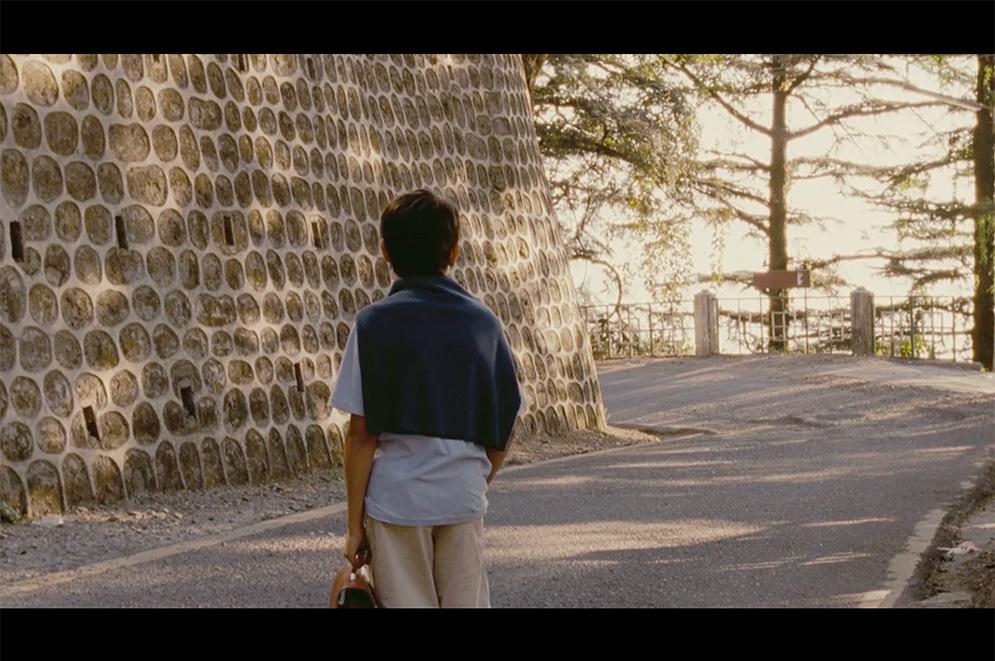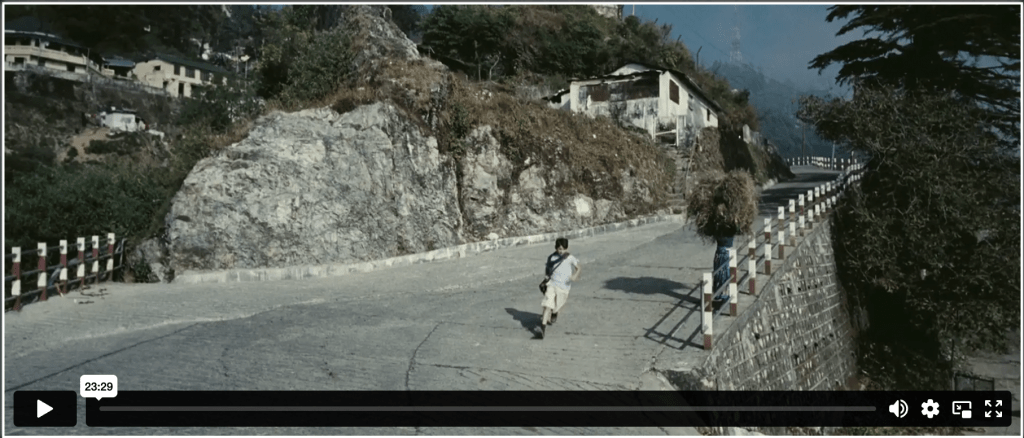
13 Dec A Multiplicity of Cultures: Third Culture Kids, Missionary Kids, and Cross-culture Kids at Woodstock
As a nearly 170-year-old institution and Asia’s oldest K-1 2 international boarding school, Woodstock School has a long history of serving students from a variety of cultures. As most of our alumni know, Woodstock has been home to Third Culture Kids (TCKs) since before the term “Third Culture Kid” was coined. Here we are sharing Woodstock-related academic studies, films, and other resources on the topic of Third Culture Kids and Cross-Cultural Kids (which includes a broader population of kids growing up in more than one culture). This page will be updated periodically.
The TCK definition guiding Woodstock School’s current work comes from David C. Pollock and Ruth Van Reken, who co-wrote Third Culture Kids: The Experience of Growing Up Among Worlds, the authoritative book on TCKs.
A Third Culture Kid is:
“… an individual who, having spent a significant part of the development years in a culture other than the parents’ culture, develops a sense of relationship to all of the cultures while not having a full ownership in any. Elements from each culture are incorporated into the life experience, but the sense of belonging is in relationship to others of similar experience.”
Woodstock School Principal Dr. Craig Cook shared the following in his letter introducing the 2023 edition of The Quadrangle, our annual alumni publication:
“At Woodstock we are also in many ways a collection of Third Culture Kids, both students and staff, who have formed a third culture at Woodstock itself. Third culture individuals are raised in cultures other than those originally of their parents and spend significant time shaping their values and their identities in a blended cultural setting. In other words, the first culture refers to the parents’ culture of origin, the second culture refers to the current country’s culture, and the third culture refers to the unique blend of cultures that have come together at a particular place at a particular point in time. If you know Woodstock, does that sound familiar?
Third culture individuals are attuned to building relationships with other cultures while they also at times struggle to possess a culture of their own. Where do they feel they belong? I spoke recently with a current staff member who attended Woodstock while growing up in India, but their childhood home decades ago is now only a cement foundation slab in an eastern state that has even changed its name. Yet they talk of their return to Woodstock decades after leaving and feeling immediately at home again and even identifying more with their childhood culture here than their parents’ culture they moved away to and in which they spent decades of adult life. The third culture formed and learned at Woodstock beckoned and invited as truly home.
Third culture individuals appreciate an expansive worldview along with cross-cultural sensitivity and intelligence. They also find themselves searching earnestly for home and questioning their loyalties to nationhood, values, politics, and other things. From academics to residential life and activities including enrichment, music, outdoor learning, service, athletics, and global exposure, at Woodstock we help young people discover a common humanity that transcends the divisions of wealth, culture, religion, and ethnic identity which so often characterize the conflicts and problems in the world today.”
An Analysis of the Factors in the Personality Development of Children of Missionaries by former Woodstock Principal Rev. Allen Parker
The first study ever undertaken on the unique needs of children growing up in a culture different from that of their parents was about Woodstock students, presented in 1936 by then Woodstock Principal Rev. Allen Ellsworth Parker.
Ruth Van Reken, co-author of Third Culture Kids: The Experience of Growing Up Among Worlds and past FWS reunion speaker, recently shared, “I am glad Allen Parker is getting the recognition he deserves for seeing there was something to study even before others were aware!”
She continues, “I know [my co-author] Dave Pollock often mentioned Allen Parker as the first person to do any research on this community and the characteristics he noted …. The week I was at Woodstock itself in or around 2000 (invited and hosted by Kaye Annette Vogel Jacob – then Aoki, former Woodstock School Principal), I met wonderful people and became aware through Mrs. Monica Roberts what an integral part of the staff local hires are as well as expat folks. She had incredible wisdom, and we connected relatively recently when she let me know she had retired.
Woodstock at that point was the beginning of my awareness of how much schools established for the Missionary Kid (MK) population had changed culturally … now with a lovely mix of many students from India as well as surrounding countries, some of which I had never heard of before! This was the beginning of my awareness of how a changing world was being reflected in the international school context. Once again, Woodstock was leading the way.”
Here, we are sharing Rev. Parker’s original Master’s thesis from the Woodstock School archives. Here is what Rev. Parker himself shared about the thesis and his work on it:
“During our furlough in 1932, I made quite a study of the adjustment problems of children of missionaries. I collected data through questionnaires to former Woodstock students and finally wrote a thesis on the subject for my M.A. at the University of Chicago. I continued my studies on through my furlough in 1940. I did the work at the University of Chicago in 1932-33 but did not write the thesis until two years after we returned to India. As far as actual writing of the thesis is concerned, Irene did more on that than I did. I collected the data and worked it over and then seemed to be so busy I did not put the finishing touches to it. Irene, with her usual determination, worked and worked at it until it was finished. I often told her she deserved the M.A. degree more than I did. On the whole, this was a very interesting and fruitful study. It threw the proper light, I think, on places where emphasis should be placed in our work with children of missionaries.” – Parker, Rev. A. E. (2004). In Eighteen Years in Woodstock (p. 19). Woodstock Publications.
Ruth Van Reken reiterates: “Rev. Parker of Woodstock was the first person that I know of to note that there was something ‘different’ about the personal characteristics of the students there. At that time in the mid-1930s, they were basically all missionary kids, but the crack was made in awareness that there was something new to think about.”
Woodstock – Its Effectiveness in Fulfilling Stated Goals and Objectives as a Christian International Residential School: A Survey of the Graduates 1976-1995 by former Woodstock School Director of Counselling and 1992 Acting Principal L.L. Jim Lehman
Another Woodstock staff known to have studied Woodstock TCKs is Jim Lehman, who conducted PhD research with Woodstock alumni when he was Director of Counselling at the school. During a visit to Woodstock for her class’s 40th milestone reunion, Jim’s daughter Carol Lehman ’83 shared a copy of her father’s dissertation with the Woodstock School archives, which includes a chapter on Woodstock Third Culture Kids.
Third Culture Kids’ Repatriation and Planned Transition to College from a South Asian Country by Woodstock School parent Sandra Blank
Woodstock parent Sandra Blank just recently published her PhD research on Third Culture Kids, which sought to answer the questions: How do TCKs perceive the major events or benchmarks in their transition to college? How did expected and unexpected outcomes impact TCKs’ experience during their transition to college? What resources do TCKs typically access during their repatriation to college transition in the U.S.? What are the strategies TCKs used in their first year of college that contributed to their persistence to graduation?
“The Road Home” film by Rahul Gandotra ’94
“The Road Home” (2015) is a short film about a TCK who returns to Woodstock School after spending her childhood living abroad. The film explores the challenges and rewards of being a TCK and the importance of community and connection (see 2009 edition of Woodstock’s brown & gold newsletter on Rahul and the film here).
Synopsis (from the film’s website): Growing up in England, ten-year old Pico never wanted to go to boarding school in the Himalayas, and despite the beauty there, he struggles to fit in. When he’s bullied for insisting he’s British in spite of his Indian heritage, he runs away, determined to return to his home in London. As he journeys through a country foreign to him, Pico encounters others who mistake him for an Indian boy, forcing him to face the painful truth that the world does not see him the way he sees himself.
Again, Ruth Van Reken shares, “… the movie ‘The Road Home‘ is also a stellar contribution to the field made by one of your alumni, Rahul Gandotra (’94) … when he went to Woodstock to film ‘The Road Home’ for his Master’s thesis project for his film school (London Film School) … he told folks what he wanted to do and was working on, [and] it was the first time someone also told him about TCK issues. He said he read the TCK book (Third Culture Kids: The Experience of Growing Up Among Worlds) almost the whole time he was there, but what intrigues me is he had also identified some of these issues of identity, etc., from his own story and those of others around him before anyone told him these were common. It is a brilliant movie I have used many times and a great discussion builder. So, add that to the Woodstock laurels.
From the film’s website: “Rahul Gandotra was born in Belfast, Northern Ireland, and grew up in eight countries across Europe, the Middle East, Asia, and America. His international childhood has been a major inspiration and influence on his filmmaking.
After finishing his undergrad degree at the University of Michigan, Ann Arbor, Rahul headed to the London Film School for his MA in film directing. For his master’s thesis, he traveled to the Himalayas to direct “The Road Home.” It turned out to be the film school’s very first nomination for the Student Foreign Academy Award.
“The Road Home” went on to win many awards in film festivals around the world and was finally nominated for the British Independent Film Awards and shortlisted for the 2012 Oscars. But for Rahul, it has been more satisfying to watch his film gain a strong following in the Third Culture Kid community.”
The film has become a key tool for learning about and discussing the TCK experience. “The Road Home” website has a section dedicated to resources for and about TCKs as well as a Professional Edition of the film with an accompanying website that includes, among other things, an expert commentary from Ruth Van Reken. The film was required viewing for staff and faculty at Hebron School when former Woodstock School Board member Dr. John Barclay was principal from 2012-2015.
Click the image below to watch “The Road Home” on the official website.







No Comments